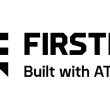San Francisco LTE vote set for next week
Members of a San Francisco budget and finance committee yesterday expressed concerns about several unknown issues associated with a regional LTE network for first responders, but they agreed unanimously to forward the final decision on the Motorola Solutions project to the board of supervisors without a recommendation.
With yesterday’s action, the entire San Francisco board of supervisors — including the three members of the budget committee — will be able to consider agreements with Motorola Solutions during its meeting next Tuesday.
“I think that it is pretty clear that we need to be part of a regional system. It is important from a public-safety point of view and from a big-disaster point of view — when we have earthquakes or other big disasters, they don’t stop at San Francisco’s borders,” Supervisor Carmen Chu, who chairs the budget committee, said during yesterday’s meeting. “They continue on, and there is going to be absolute reason for us to communicate, to work together and to share our resources when those times come.
“I absolutely think it is important for us to do it. I think it will enhance our local public safety efforts, as well.”
While all committee members echoed this sentiment, the committee did not recommend that the board approve the agreements with Motorola Solutions to build and operate the proposed BayWEB LTE system, because the members have several reservations about the project.
Key concerns include the absence of an identified funding source to pay for the estimated $3 million to $4 million that it will cost San Francisco public-safety personnel to access the broadband network and that the LTE network is not part of the city’s long-term technology plan, which was approved before the project proposal was finalized.
“I see the value of being able to process digital data among our public-safety departments — especially knowing that as each year goes by, the risks of the big one or other disasters are imminent,” Supervisor John Avalos said. “I just feel it is a bit of the tail wagging the dog in a way. This has not necessarily been as strongly planned for within all our different city departments.”
Under the proposed agreements with Motorola, region is getting almost $100 million in funding from outside sources — $50.6 million in a federal grant and about $45 million in upfront funding from Motorola. The fact that the federal grant was awarded to Motorola instead of the government entities within the region remains a concern for Supervisor Jane Kim.
“It would be great if we could have had our own RFP process where we could have looked at the technology that was out there and picked our own carrier,” Kim said. “I know this is something the federal government had picked, but there is a part of me that feels uncomfortable with the fact that we’ re getting a system because it is free, not because it is the best system out there. And this could be the best system out there — I am not saying it is not.
“I do feel comfortable moving it out of committee. I would request we do with no recommendation and let our colleagues weigh in on this, as well.”
Chu acknowledged that she initially had concerns about the role Motorola Solutions is playing as the grant recipient, but she believes the long-term arrangement should be beneficial to San Francisco.
“What I am comforted by is the fact that, after a 10-year period, all those assets don’t remain Motorola assets,” Chu said. “They actually convert to the assets of the JPA, which become public assets. So I am comforted by the fact that the long-term asset would become ours.”
Related stories:
















